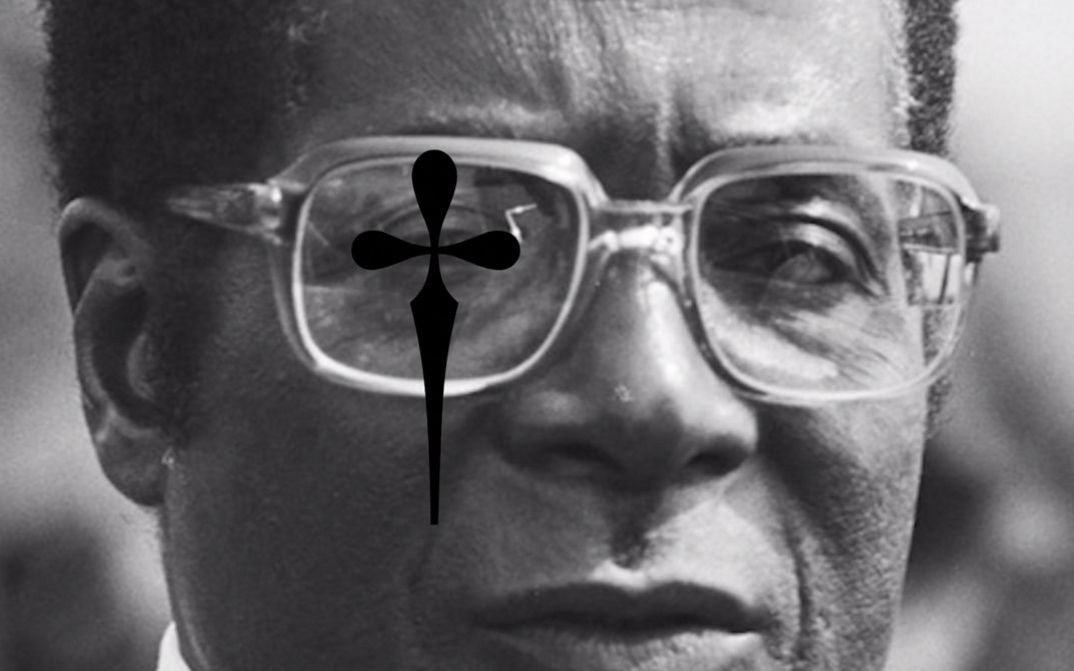Program 3

Fri 17.02.
20:00
Cinema
silent green Kulturquartier
Short film program consisting of:
THE EARLY RAIN WHICH WASHES AWAY THE CHAFF BEFORE THE SPRING RAINS
TRIP AFTER
ES GIBT KEINE ANGST
Total running time approx. 53 min.
Director
Heiko-Thandeka Ncube
Germany / 2023
12 min.
/ Original version
Original language
Ndebele
“The title of this film translates to the Shona word ‘Gukurahundi,’ a cynical euphemism that refers to a series of massacres that were executed by the Zimbabwean military in the 1980s. The genocide happened within the wake of Zimbabwe’s liberation and targeted the Kalanga and Ndebele people, part of my paternal ancestry. Symbols, commonly referred to as ‘daggers’ and whose origin can be traced back to the Library of Alexandria (280 BCE), persistently chapter the imagery within the film.
The work consists of widely sourced footage, cut and cropped into a mosaic evoking ghosts in the shape of nationhood and ancestry. Gaping wounds that are sorely mended by wisps of Christian and Bantu mythology enact rippling effects throughout the years that followed Zimbabwe’s emancipation. Adversities drawn from past centuries emerge and collide with the psychological impact of racial oppression. THE EARLY RAIN WHICH WASHES AWAY THE CHAFF BEFORE THE SPRING RAINS interlaces the historical context of the genocide with affective associations derived from its traumatic legacy. It articulates a sense of grief, fear, and violence that has been passed down through generations.” Heiko-Thandeka Ncube
Director
Ukrit Sa-nguanhai
New Zealand, Thailand / 2022
10 min.
/ Original version with English subtitles
Original language
Thai, English
In the 1960s, the United States Information Service (USIS) mobile film units traveled around the northeast region of Thailand showing their self-produced propaganda films to rural audiences as a part of a psychological operation. THE COMMUNITY DEVELOPMENT WORKER (1958), one of their most well-received works, was also filmed in a province in that same region.
TRIP AFTER is a 2022 travel vlog inspired by the field trip reports of those USIS mobile film units. The film revisits the same locations where the original screenings and filming took place, whether to trace, articulate, or fabricate the impression of the past events.
Director
Anna Zett
Germany / 2023
31 min.
/ Original version with English subtitles
Original language
German
An expiring police state is the setting for the pulsating short film thriller ES GIBT KEINE ANGST (Afraid Doesn’t Exist). Based on her own childhood experiences from before 1990, the artist Anna Zett has assembled video and audio material from the Berlin Archive of the GDR Opposition into an intense and poetic archive drama. Between picture and sound the films opens up an associative space to connect anew with experiences of violence that are difficult to make sense of today, while at the same time documenting an act of political resistance that seems extraordinarily effective considering German history. Vocally highly condensed voices from a 1986 East Berlin poetry tape support the voiceless narrator – “an adult child” – in the reconstruction of her own emotional world, as does the multi-layered musical score. From footage of the environmental library to private videos and TV footage, the film leads in ceaseless escalation to the second occupation of the Berlin Stasi headquarters with hunger strike in September 1990, where it settles into a very different mood.